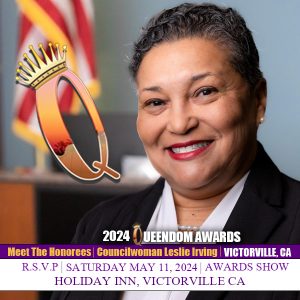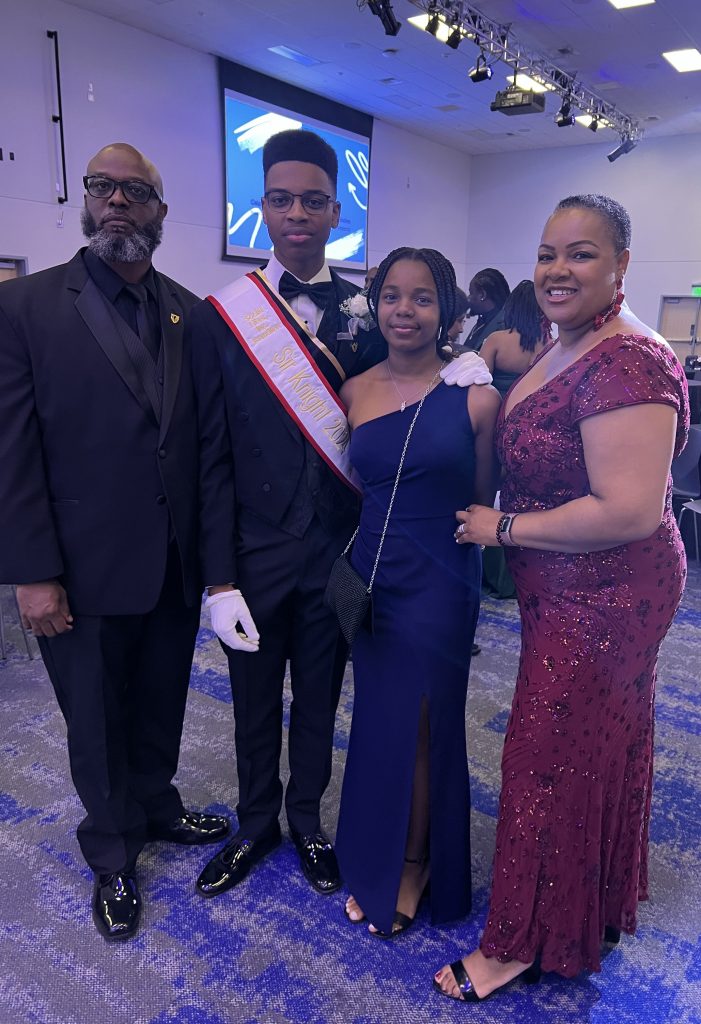SBCUSD BOARD OF EDUCATION HONORS OUTSTANDING INDIVIDUALS
February Outstanding Achievement Awards Recognize District Students, Parents and Staff
SAN BERNARDINO, CA—- In Feb., the Board of Education presented the Outstanding Achievement Awards to students, parents and staff of Lincoln and North Park Elementary Schools, Rodriguez PREP Academy Middle School and Arroyo Valley High School (AVHS).
The Board recognizes Outstanding Student Award winners to honor excellence in academics, athletics, fine arts, citizenship, and most improvement. The Board also presents the Outstanding Parent/Grandparent/Volunteer Award and Outstanding Employee Award to individuals who embody the district’s dedication to student achievement and well-being.
Lincoln Elementary School, Principal Dr. Heather Regalado:
Malachi Boyd is a fifth-grader and Outstanding Student. Boyd has shown tremendous growth in reading through his consistent perseverance. He now enjoys learning new words and takes pride in the fact he can read words he couldn’t read before. Boyd wants to become a professional football player.
Abraham Lopez Torres is a dual-immersion third-grader and Outstanding Student. Torres is an English Learner who has worked hard to learn his letter names and sounds in both languages and is now reading in Spanish and speaking English. Torres wants to become a fisherman because he loves the ocean.
Outstanding Parent Award winner Diana Alvarez is dedicated to increasing family engagement opportunities at Lincoln. She has led the work for the fall festival and the Dr. Seuss Literacy event. Alvarez is also an important member of the School Site Council.
Senior Recreation Leader Lucila “Lucy” Garcia makes sure Lincoln is a safe place for students when they are on the playground and in the cafeteria. She is always moving and provides active supervision at all times. She is a great model for the Rec. Aide team.
In one short year, Counselor Ariceli Rodriguez has been able to immerse herself into the culture and bring joy and happiness to students and staff. She uses every opportunity available to help students learn anti-bullying strategies and how to regulate themselves.
North Park Elementary School, Principal Heather Bjornberg:
Samantha Cooley is a third-grader and Outstanding Student. She excels in reading, writing and math. She puts her best effort into completing class assignments and shows attention to detail in her work. She is responsible and displays strong leadership skills. Cooley wants to find a career where she can ride horses professionally.
Elyjah Moore is a sixth-grader and Outstanding Student. Moore is a model scholar. He is usually the first to take the lead in group discussions and contribute and share ideas. He is dependable and is willing to help classmates and teachers. Moore’s dream is to attend USC to pursue an athletic career in baseball, and also pursue a career in law enforcement.
Outstanding Parent Award winner Stevie Young’s tireless efforts in creating a nurturing and conducive learning environment do not go unnoticed. Staff members are deeply thankful for her willingness to lend a helping hand, whether it’s through volunteering in classrooms, assisting with extracurricular activities or supporting other events.
Secretary II Darlene Peters is an Outstanding Classified Employee. Peters is instrumental to North Park. She has demonstrated unwavering dedication and exceptional kindness and professionalism to scholars and families, resulting in significant contributions to the betterment of the school.
Program Facilitator Heidi McQueen demonstrates qualities such as attention to detail, timeliness, effective communication, professionalism and adaptability. She not only ensures the quality of her work, but also fosters an environment of trust, collaboration and continuous growth and innovation.
Rodriguez Prep Academy Middle School, Principal Kathy Atencio:
Eighth-grader Aalana Jackson is an Outstanding Student. Jackson’s contributions to her school and community showcase her as a role model for her peers, embodying the qualities of a true scholar and citizen. Jackson aspires to enroll at Howard University and pursue a career path in veterinary medicine.
Blake Marquez is an eighth-grader and Outstanding Student. Marquez’s efforts have not only resulted in significant academic growth but have also demonstrated responsibility, respect and integrity within the school community. His positive attitude, hard work and perseverance will serve him well in his future as a computer engineer.
Lucia Hernandez Noriega is an Outstanding Parent. She is an invaluable member of our parent leadership team, where her insights, input and commitment greatly enhance the school’s collaborative efforts. Her unwavering support and active participation in community initiatives underscore her genuine commitment to promoting the educational welfare of students.
Custodian I Leticia Villalpando is an Outstanding Classified Employee. Villalpando is emotionally committed to the school’s success, striving to make it the pride of the neighborhood. She possesses a positive passion for fostering strong relationships with students, and her dedication to service is consistently exceptional.
Seventh-grade Teacher Abigail Tejada is an Outstanding Certificated Employee. Tejada is deeply committed to the academic growth and well-being of her students. Her approach is holistic, focusing on the whole student, not just their academic performance. Her dedication to her students’ success is evident in her inclusive learning environment.
Arroyo Valley High School (AVHS), Principal Manuel Gonzalez:
Brianna Hernandez is a sophomore and an Outstanding Student. Hernandez actively works toward finding solutions and gaining new knowledge. She is a very principled student who is willing to take on student leadership positions. She would love to pursue a career in physical therapy, dentistry or teaching biology.
Senior Yaretzi Medina-Hernandez is an Outstanding Student. Known for her outstanding citizenship, Medina-Hernandez contributes to a positive and inclusive school environment. In addition to maintaining high academic standards in her rigorous courses, she is a dedicated member of the school orchestra. She has plans to study music and dance at the collegiate level.
Yadira Contreras is an Outstanding AVHS parent who has truly made a significant impact on her child’s education and the entire school community. She not only prioritizes her child’s education but also advocates for the well-being and academic success of all students.
Juanita Loya is an Outstanding Classified Employee. Loya is a dedicated Campus Security Officer II whose commitment to the betterment of students is truly exceptional. Loya not only possesses high standards for security protocols but also goes above and beyond to establish a positive rapport with students.
Linked Learning Program Specialist and CTE Department Chair Dimitri Chronopoulos is an Outstanding Certificated Employee. Serving as a visionary leader, Chronopoulos’s commitment is evident in his instrumental role in developing top-notch Career and Technical Education(CTE) pathways, offering students invaluable opportunities for skill development and real-world preparedness.
About San Bernardino City Unified School District:
The San Bernardino City Unified School District is California’s eighth-largest school district and is dedicated to providing a high-quality education that prepares more than 46,000 students for college, career and life. With a focus on equity, excellence and empowerment, the District serves a diverse student population in the San Bernardino and Highland communities.
 Westside Story Newspaper – Online The News of The Empire – Sharing the Quest for Excellence
Westside Story Newspaper – Online The News of The Empire – Sharing the Quest for Excellence



